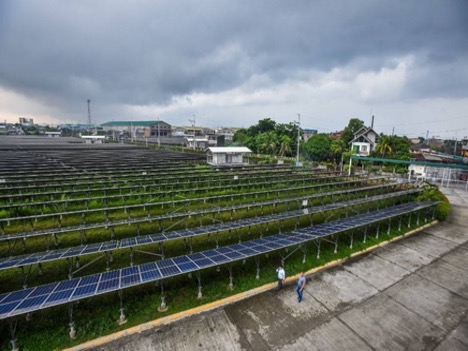
BY LEANDER C. DOMINGO
MANILA (June 7)—Global environment network Greenpeace International has urged the incoming administration of President-elect Ferdinand “Bongbong” Marcos to prioritize renewable energy for the country’s power requirements instead of reviving the mothballed Bataan nuclear power plant.
“We have yet to see detailed plans of the incoming administration for energy development, but recent statements that nuclear energy is the ‘cleanest and cheapest’ are not true and are dangerous assertions,” Greenpeace campaigner Khevin Yu said.
Yu said nuclear power is the most dangerous and most expensive way to produce electricity.
Greenpeace has cited a 2020 report by Lazard that the levelized cost of operating energy of solar is around $36 to $44 per megawatt-hour (MWh) while nuclear costs $112 to $189 per MWh.
“Pursuing nuclear energy will be a distraction from achieving energy transition, as this could derail investments on renewable energy, undermine ongoing policy efforts, propel high electricity prices, and bring in risks of radioactive contamination and nuclear meltdown,” the report said.
“It also fails to meet the basic technical, economic, social and political criteria for a sustainable energy policy,” the report added.
Yu also cited the worsening climate impacts and the country’s vulnerability to said impacts as critical risk factors for a potential nuclear disaster.
He said nuclear energy will be too risky to operate in the Philippines “considering that we are constantly battered by strong typhoons and other extreme weather events, which could easily compromise the operation of a nuclear power plant.”
“The incoming administration should also bare their plans for when a nuclear disaster happens. Experiences from other countries have shown that nuclear disaster cleanup and rehabilitation can reach up to hundreds of billions of dollars. It’s clear that nuclear power does not make any economic sense and will hinder all efforts on economic recovery,” Yu said.
Greenpeace also noted that with around 800 gigawatts of untapped renewable energy in the country, the priority of the new administration should be the strengthening of the transition to wind and solar energy, which will provide reliable and cheap electricity to Filipinos.
